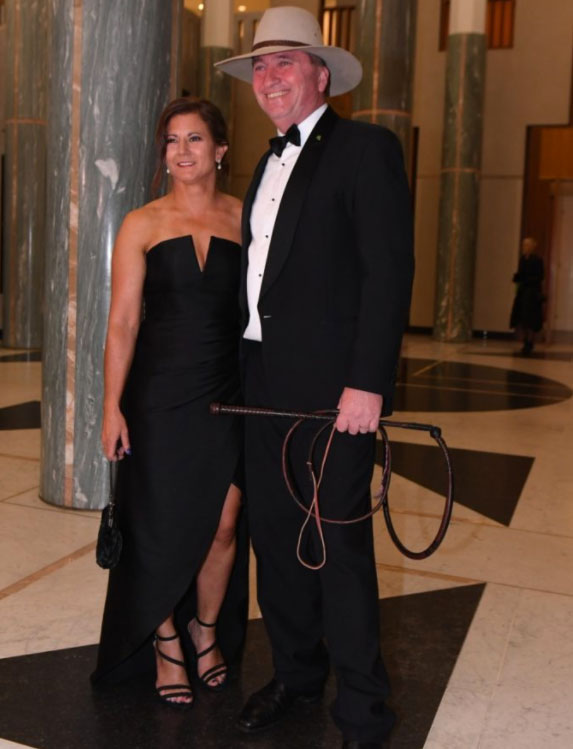Earlier this week, we published a piece by Melissa O’Donnell arguing that the private lives of elected leaders should not be entirely off limits. Melbourne-based philosopher Janna Thompson replies.
Is Barnaby Joyce’s affair a private matter that should not be publically discussed? To answer, I think we need to make a distinction between two issues.
- Is it fair that Barnaby Joyce’s privacy be respected when the private lives of public women are regarded as legitimate objects of scrutiny and judgment (as in the case of Cheryl Kernot)?
- Should we prefer a social and journalistic convention that keeps the private lives of both women and men in politics out of the public eye?
It is possible to answer ‘yes’ to the first question (as O’Donnell does) and yet believe that scrutiny of private lives ought, in most cases, to be kept out of politics. It is possible to approve of the exposure of a hypocrite who claims to stand for family values while still resisting the practice of publicising the private affairs of politicians.
Politicians are not paragons of virtue. There are many, many examples from recent history of politicians who had affairs, slept around or divorced their partners. Some of these were good leaders, or at least effective in getting things done. We are better off for their being in politics.
To make private lives the object of scrutiny, and private faults or vices a reason for condemnation, is to make virtue a requirement for holding political office. This would be bad for many reasons. It would keep out of politics talented people who do not want their private lives scrutinised, for whatever reason. It would turn the press gallery into a gutter press, concentrating on exposing and discussing the latest sexual scandal rather than focussing on the business of the nation. It would turn politics into soap opera.

Most of us are not all that virtuous, or not all the time, and insisting on virtue in all private lives would ensure that politicians would find devious, secret ways to sin – to the detriment of the people they are involved with, and to the general reputation of politicians. We do not need more reasons to despise our democratically elected representatives.
So when is it legitimate to expose the private life of a politician? Obviously, if he or she is doing something corrupt or otherwise contrary to law. Those who make the law should not treat themselves as being above it. It is also legitimate when the person acts abusively to others. A basic respect for the people they serve and for those they deal with publicly or privately should be required of politicians.
It is reasonable to insist that politicians should not abuse their power or disrupt the administration of their office by having affairs with their subordinates. This is not only bad for those who are the objects of their attention, it also gets in the way of the job they and their staff are supposed to be doing.
An occasional misdemeanour may legitimately escape public scrutiny and comment. But systematic and serial abuse should be exposed.
However, I am doubtful that a rule governing the relationships between politicians and their subordinates is a good idea. Effective enforcement would probably be overly intrusive and if a rule is not effectively enforced it becomes laughable or another weapon in sectarian battles.
Is it legitimate to expose a politician for being a hypocrite? After all, who doesn’t enjoy the spectacle of a hypocrite exposed? But all of us are sometimes hypocrites and we shouldn’t be too surprised or judgmental when others fail to live up to their professed standards.
When someone puts forward a political position we should really be concentrating on the rightness or wrongness of their views.
Barnaby Joyce, however, is fair game because he did not hesitate to make insinuations about the private lives of same sex couples. He invited a comparison between the supposed dysfunction of their family relations and the supposed rectitude of the family lives of people like him.
Exposing him as a hypocrite also reveals the faults in his political position.
Donate To New Matilda
New Matilda is a small, independent media outlet. We survive through reader contributions, and never losing a lawsuit. If you got something from this article, giving something back helps us to continue speaking truth to power. Every little bit counts.




